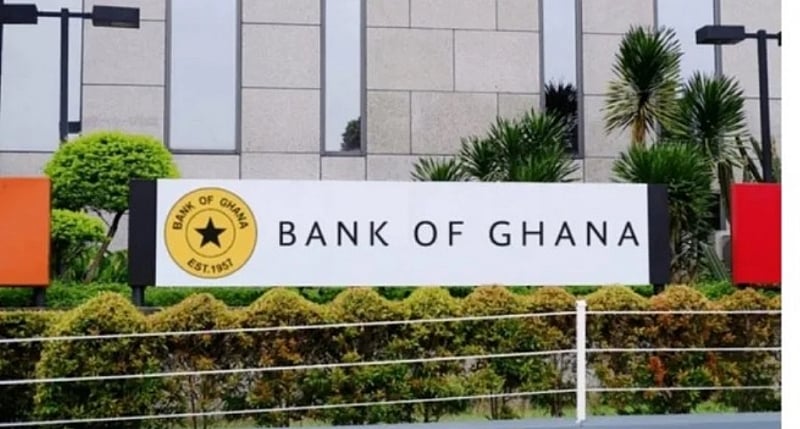The Bank of Ghana, in a significant move aimed at stimulating economic activity and reflecting the improving macroeconomic landscape, has reduced its Monetary Policy Rate (MPR) by a substantial 350 basis points, bringing it down to 21.5 percent from the previous 25 percent. This decision, reached by a majority vote during the 126th Monetary Policy Committee (MPC) meeting held in mid-September, signifies a shift in the central bank’s monetary policy stance, acknowledging the progress made in containing inflation and stabilizing the economy. The MPR, being the benchmark interest rate, plays a pivotal role in influencing borrowing costs for commercial banks and consequently affects the interest rates offered to the public. By lowering the MPR, the Bank of Ghana aims to encourage borrowing and investment, potentially boosting economic growth.
The rationale behind this rate cut stems primarily from the sustained decline in inflation over the past eight months. The Bank of Ghana views this downward trend as a positive indicator of macroeconomic stability and expects the disinflationary process to continue in the near term, projecting inflation to fall within the medium-term target band of 8 ± 2 percent by the end of the fourth quarter of 2023. This controlled easing of inflationary pressures allows for a more accommodative monetary policy, fostering a conducive environment for economic expansion. The Bank emphasizes its commitment to closely monitoring economic indicators and adjusting its policy stance as needed to further reinforce the disinflation process and maintain price stability.
While the overall outlook is positive, the Bank of Ghana acknowledges potential challenges that could impact the inflation trajectory in the medium term. Specifically, it notes that any upward revisions to utility tariffs could exert upward pressure on prices, potentially offsetting some of the gains made in controlling inflation. This highlights the intricate interplay between various economic factors and the need for a vigilant and adaptable monetary policy approach. The Bank recognizes the importance of balancing the need for economic growth with the imperative of maintaining price stability.
To ensure the continued success of the disinflation process and overall macroeconomic stability, the Bank of Ghana outlines a multi-pronged strategy. This strategy includes maintaining an appropriate monetary policy stance, which suggests a willingness to further adjust the MPR if economic conditions warrant. It also emphasizes the importance of strong sterilization efforts, which are designed to manage liquidity in the money market and mitigate the inflationary impact of government borrowing. Furthermore, the Bank underscores the crucial role of ongoing fiscal consolidation, implying a commitment to responsible government spending and revenue management. Finally, the maintenance of adequate reserve buffers provides a safety net against external shocks and strengthens the resilience of the Ghanaian economy.
The decision to reduce the MPR represents a calculated move by the Bank of Ghana to support economic growth while maintaining a watchful eye on inflation. The Bank’s forward-looking approach, coupled with its commitment to adapting its policies as needed, demonstrates its dedication to fostering a stable and prosperous economic environment. This proactive stance underscores the importance of a data-driven and flexible monetary policy framework in navigating the complexities of the global economic landscape. The Bank’s emphasis on coordinated fiscal and monetary policies further strengthens the foundation for sustainable economic development.
In conclusion, the Bank of Ghana’s decision to lower the MPR by 350 basis points is a significant development reflecting the positive strides made in controlling inflation and stabilizing the macroeconomic environment. The Bank’s commitment to closely monitor economic trends and adjust its policy stance as necessary, along with its emphasis on strong sterilization efforts, fiscal consolidation, and maintaining adequate reserve buffers, signals a proactive and forward-looking approach to monetary policy management. While acknowledging potential challenges, such as the impact of utility tariff revisions, the Bank remains confident in its ability to steer the economy towards sustainable growth while keeping inflation within the target range. This strategic approach aims to create a conducive environment for investment, job creation, and overall economic prosperity in Ghana.


